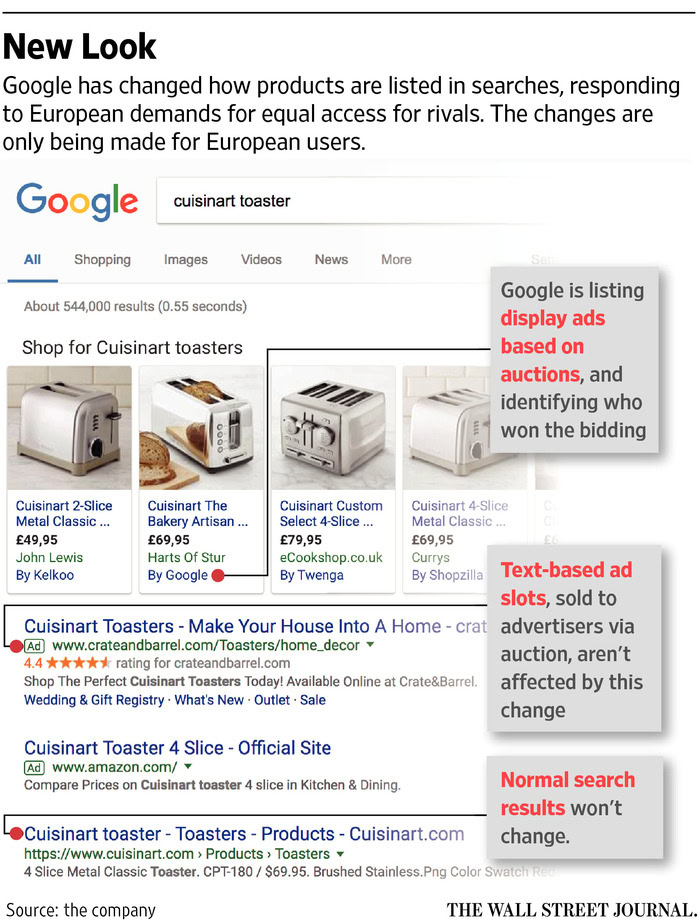Affiliate links on Android Authority may earn us a commission. Learn more.
Google’s changes to its search engine leave everyone unhappy

Google is bringing some significant changes to how it displays search results in Europe, but it looks like nobody is fully satisfied.

You may remember the hefty fine that Google was charged with back in June: at $2.7 billion, it was the largest fine ever issued by the European Commission, and industry experts have previously stated that the ruling could have far-reaching impacts on antitrust behavior in Europe. Essentially, the European Commission found that the search giant unfairly displayed its own shopping service over others, increasing Internet traffic by as much as 45-fold in European countries. Google is appealing the decision, of course, but in the meantime, it’s making changes in order to avoid further noncompliance fines – starting with Google Shopping.
If you’re in Europe, you will soon see the modified version of Shopping search results. Unlike before when Google simply gave you a list of merchandises, all from its own shopping service, the company will now display ads based on auctions with clear marks indicating who won the bidding. Here is an example, provided by The Wall Street Journal:

Google says that it will sell ads to merchants and run it as a stand-alone business in order to address the concerns about anticompetitive behavior raised during the recent EU ruling. In other words, Google Shopping will participate and compete on equal terms in ad auctions but only to an extent where the company remains profitable. As you can imagine, the search giant is not too happy about the ruling and the changes it’s had to make, but curiously enough, it seems like those on the opposite side aren’t satisfied with Google’s measures either.
In practice, small- and mid-sized businesses are still disproportionately disadvantaged and unfortunately, pushed out of the competition simply due to their limited financial resources.
As The Wall Street Journal points out, while shopping-related companies and merchants will have the chance to bid in Google’s ad auctions, the sheer amount of competition is likely to mean exceptionally high bidding prices and consequently, minimal profit, if any. Indeed, Google’s changes seem to address the EU ruling on the surface, but in practice, small- and mid-sized businesses are still disproportionately disadvantaged and unfortunately, pushed out of the competition simply due to their limited financial resources.
The European Commission states that it is simply too early to tell whether Google’s recent move will be sufficient to avoid further fines but cautions that it will be monitoring the company to make sure it’s in full compliance with the order. In the meantime, industry experts argue that the antitrust ruling could affect the way Google operates other services like Android. A similar ruling was made in Russia, after which Google was forced to allow users to choose from various search engines on Android devices.
Do you see the changes on Google for shopping search results? Do you think Google’s move will be enough for them to avoid further fines? Let us know by leaving a comment below!